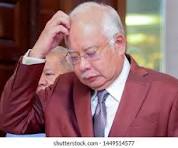COLUMNISTS: HORIZONS- US vs China: The real Cold War
Defining world order as the set of commonly accepted rules that govern inter-state relations, Henry Kissinger warned of systematic crisis when there is “either a re-definition of legitimacy or a significant shift in the balance of power.” In many ways, this is precisely what’s happening now, as a resurgent Beijing tries to remake the global order with Chinese characteristics. From the South China Sea to TikTok and 5G technology, China is challenging Western hegemony in ways unlike any power in history.
Unwilling to relinquish its century-old hegemony, the United States will fight back regardless of who occupies the White House next year and beyond. Far from just a “new” Cold War, this is actually “the real” Cold War.
In the far future, the overnight evisceration of Hong Kong’s long-cherished autonomy will likely be remembered as the opening salvo of this new conflict, the kind of which no one could have ever anticipated.
During a recently-organized webinar entitled “Is Hong Kong’s Present Going to be Asia’s Future?” I was asked to react to presentations from leading democratic voices from Hong Kong and Taiwan.
.
“[T]hings began going very wrong when Xi Jinping became president… He started adopting very harsh policies, not just on the people in mainland China,” said Hong Kong democracy advocate Emily Lau, during the event co-organized by the Council of Asian Liberals and Democrats and the National Democratic Institute.
“I do not want the rest of the world to share our fate… We had such a safe and peaceful life for 23 years, and now it’s disintegrating,” lamented the long-time legislator and activist.
.
Only a year ago, what happened in Hong Kong would have been unthinkable. But the pandemic has provided a unique opportunity for authoritarian regimes across the world to exploit the language of “law and order” and “national security” to silence the opposition.
China’s ambitions, however, far exceed turning places such as Hong Kong, Tibet, or Xinjiang into docile provinces. “The shrinking democratic space of Hong Kong is an important issue for the Taiwanese at the moment,” explained Ketty Chen, a leading thinker in the Democratic Progressive Party of Taiwan.
“Taiwan has been, unfortunately, experiencing tremendous pressure from China, not just [military] threats, but also influence operation, information warfare,” she continued, explaining how China is “trying to divide Taiwanese society by using disinformation…”
During my academic stint in Taiwan last year, the issue of Chinese “sharp power” and its infiltration of key sectors of society was a major political issue. There are fears that other Asian and Western democracies could be next.
The Tsai Ing-wen administration has managed to overcome the challenge for now, thanks to widespread public support and proactive counter-infiltration measures, but the next wave of Chinese offensive is just over the horizon. Taiwan could very well be the next in Beijing’s bulldozer track.
For decades, many in the West and beyond remained naively ensnared in the triumphalist afterglow of the 1989 revolutions in Eastern Europe. With the collapse of the Soviet Union, ideologues such as Francis Fukuyama prematurely declared “the end of history.”
As far as Xi’s “Chinese dream” of “national rejuvenation” is concerned, however, history has just restarted on Beijing’s terms.
Even at the height of its power, the Soviet Union’s economy was far smaller than that of the United States alone. The term “Cold War” was in fact a misnomer, considering the millions of deaths brought about by US-Soviet proxy wars in Korea, Vietnam, the Middle East, and across much of the post-colonial world.
.
.
In contrast, China’s economy will soon be larger than that of the United States, while its financial and technological tentacles have extended deep into the critical infrastructure and political heart of many nations.
As historian Yuval Noah Harari correctly points out, the advent of Artificial Intelligence (AI) empowers well-organized digital dictatorships, which can harness data with no privacy laws or any regulatory obstacles along the way. In fact, China is now a leader in multiple areas of AI development, most prominently in facial recognition, while perched at the cutting-edge of quantum internet and 5G network development.
China is the hegemonic peer that many in the West have been warning for decades. And countries like ours are at the front line of this seismic geopolitical shift. What’s at stake is no less than our most cherished values as democratic and pacifist nations.


SIGN UP TO RECEIVE OUR EMAIL
.
The most important news of the day about the ASEAN Countries and the world in one email: [email protected]
8.5.2020











